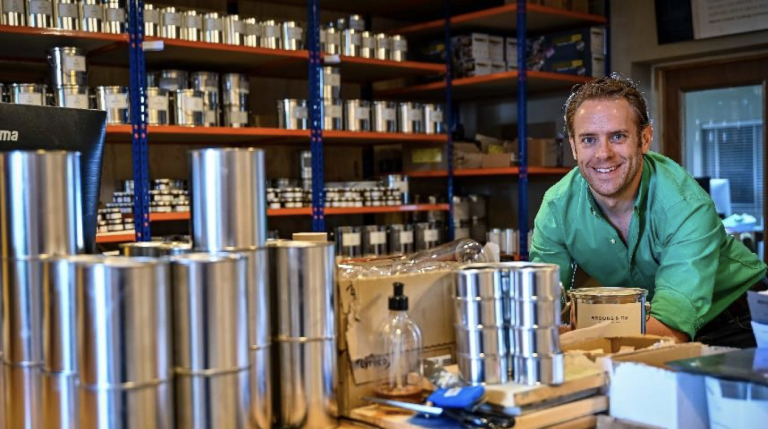Scrap metal company fined after worker loses four fingers
Boosting workforce health can help UK achieve economic growth ambitions, says CBI
Mid Yorkshire Hospitals NHS Trust signs up to Pioneer Court
Yorkshire companies and apprentice strike gold at regional manufacturing awards
Three Yorkshire companies and an apprentice have struck gold at a prestigious regional manufacturing awards ceremony.
The awards were presented at a ceremony in Harrogate organised by Make UK, the manufacturers’ organisation, and sponsored by legal firm Bevan Brittan. They were held to recognise the achievements of manufacturing companies from across the North East and Yorkshire & The Humber, with the winners now going on to the National Finals which will be held in London in January.
Bluetree Medical, based in Rotherham, picked up the Make UK Business Growth & Strategy and Innovation awards. These two awards were in recognition of the substantial growth of its medical division which the company set up at the start of the pandemic to manufacture face masks.
Starting from scratch and having re-trained a substantial number of its employees and invested in cutting edge technology, the company has risen to become the biggest supplier of face masks to the NHS, accounting for roughly a quarter of the market at the pandemic’s height. The company is also a major supplier to other organisations across the UK.
The award also recognises the pioneering work Bluetree has carried out with Alder Hey Children’s hospital in Liverpool to provide transparent face masks to children with conditions such as autism to help with their communication.
McLaren Automotive, based in Sheffield, was given the Make UK Developing Future Talent Award in recognition of the efforts of the company to engage with local schools, promote engineering as a career and develop its own talent pipeline.
This has involved a range of activities including engineering work experience where students engage with current employees and take part in technology demonstrations, factory presentations and tours. As a result of its programme, the company is on target to engage with 10 local schools and 10,000 students throughout the year. The company also promotes careers in science and engineering at events such as the Yorkshire Motor Sport Festival.
Brandon Medical, based in Leeds, was given the Manufacturing Matters Award. The award which recognises the commitment of companies to their local community and promoting manufacturing and engineering was given to the company for its longstanding work as a founder member of the Leeds Manufacturing Festival and its Apprentice programme. The company also undertakes a Knowledge Transfer Partnership with the University of Huddersfield.
Alexandra Heppell from OSL Cutting Technologies, also based in Sheffield, picked up the Business Apprentice Final Year award. The award is recognition for the impact Alexandra has made for the commercial side of the company where projects she has led have generated extra revenue. She is also responsible for training and mentoring new starters at the company such is the trust placed in her while previously she has also been nominated for a Made in Sheffield ‘Apprentice of the Year’ award.
Rohit Moudgil, head of manufacturing sector, HSBC UK, said: “HSBC UK is delighted that Bluetree Medical has won the Business Growth and Strategy Award which recognises dynamic growth through a well delivered strategy. This award demonstrates the resilience and world class quality of UK Manufacturing in a challenging economic environment.
“HSBC UK is deeply passionate about UK Manufacturing and stands ready to deploy our global reach and capabilities to support manufacturers of all sizes on their growth journey. Congratulations again to Bluetree, the other winners, and to all the nominees of the Make UK Awards on such a fine display of excellence.”
Christine Wilde, Managing Director of Isoclad who sponsored the Innovation Award, said: “We pride ourselves on being an innovative organisation, striving to continuously broaden our product offering in line with our customer and industry requirements.
“By adapting new technologies and methods of manufacturing, this places the business in pole position as supplier of choice within our sector. We are delighted to have sponsored the Innovation category of this year’s Make UK Awards and have been inspired by the calibre of the entries from companies across the Region.”
Dawn Huntrod, region director for Make UK in the North, said: “These awards are a testament to the dynamic companies and individuals working within engineering and manufacturing. The sector remains at the heart of the Yorkshire Region and creating wealth and, as we re-build our economy there will be a bright future for companies and individuals that make the most of their talent.”












